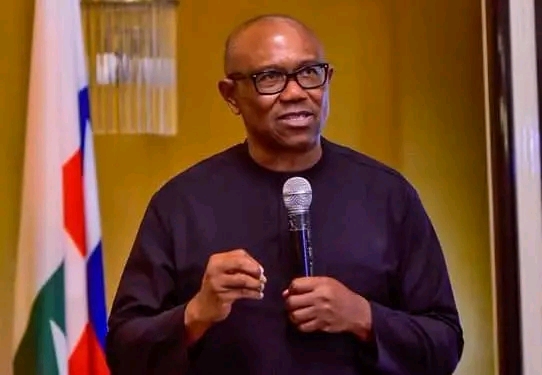
When Mr Yusuf Datti Baba-Ahmed, Vice Presidential candidate of Labour Party’s Peter Obi, came on national television asking Nigerians who have witnessed seven years of ”Buhari will tackle security” to accept empty words as a solution to an insecurity issue of global concern, citizens who were observing raised concerns but they were quickly bullied by troops of Obi-dient’s online campaigners.
As citizens, we must, however, filter the noise and observe with patience and ideological honesty. If we do this, we will see through exuberances. We will see through the clout and the noise. We will see for a fact that Peter Obi and his running mate appear to have no real solutions to Nigeria’s insecurity situation.
This position was validated by Mr Obi’s recent admission of ignorance regarding climate change. Mr Datti was not hiding any military tactics on Channels TV. They had none.
Mr Obi as a presidential candidate in 2022, should not be comfortable with responding to climate change questions with ”people have not eaten, people are running from bombs”— completely ignoring the nexus between climate change and insecurity and climate change and food security— both as independent constructs.
In terms of food security, the lake Chad basin is shrinking, the rain cycle is changing, there is drought, there is desertification, and food production is at an all-time low. In the Northeast alone, a sub-geopolitical region, 8.7 million people lack access to food. Malnutrition affects 2 million people living in IDP camps in the states of Borno, Yobe, and Adamawa as a result of a lack of access to nutritious food. Furthermore, 19.4 million Nigerians experienced a food crisis by the end of August, according to the UN Food and Agriculture Organization, as a result of the Northern insecurity situation.
Beef/meat, Cowhide and dairy produce are becoming more expensive because of the challenges in making them available. Challenges occasioned by climate change. With the drought in the North and the increasing loss of green pasture, nomadic farmers, more than ever, are forced to take their cattle down south, travelling many miles to find pasture for them.
This translates to an insecurity challenge in the sense that drought and desertification have forced thousands of indigenous and transgenerational fishermen out of jobs. Farmers and herders are now struggling for almost non-existing land for pasture.
Poverty and hunger have taken root, and anywhere these two exist, insecurity based on tense-socio political climate, terrorism, and religious extremism are bound to exist.
As I argued in my paper – “Proffering sustainable solutions to Nigeria’s insecurity challenges,” peer-reviewed by Adeyeye Olorunfemi – Economic factors constitute a significant part of the total incentives and drivers that lead to recruitment into banditry and extremist groups.
In an environment where multidimensional poverty is high and significantly deeper than what national statistics represent, as well as the existence of an excruciating reality of unemployment and underemployment, ‘economic problems’ becomes a prominent source of frustration recognised by people who profit from insecurity. This increases people’s sensitivity to narratives that encourage them to channel their grievances and despair into the cause (or the “larger picture”) of violent extremist groups.
This knowledge is so basic that no one who is truly prepared to tackle insecurity in Nigeria should not be ignorant of it. This simply means that if a Peter Obi presidency happens, it’s just another jamboree of unprepared rulers struggling to find their feet and to “learn on the job.” Our national challenges are diverse and multifaceted. It has no room for unprepared opportunists.
People can choose to support Peter Obi because he is the Igbo candidate. Or the “lesser evil.” It is their choice. People even argue that, after all, he is the ”popular third force.” Maybe so. Maybe not. But the political revolution we seek is not a popularity contest. It is not subject to the whims of emotions or the psyche of “anything except APC goes.”
If we truly want change as a people, we must not only be aware of what we are running from. We must inquire so diligently about what we are running into. Even if we’re so frustrated that we want a quick fix, we still have to be sure that we are actually getting the quick fix.
Like my dad will always say, “even when we are crying, we should still keep our eyes open.”